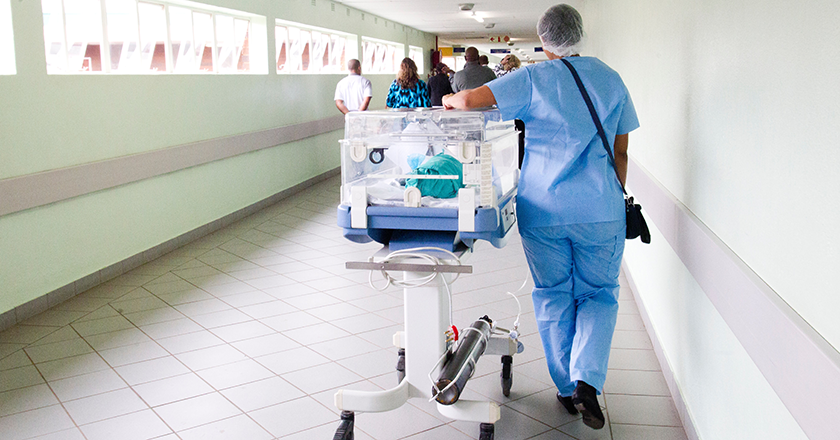The COVID-19 pandemic is affecting everyone. Many people have been laid-off or forced to work from home, children and teachers are making a shift to remote learning, and many are self-isolating to limit their exposure to the virus.
It seems that the people who have been most affected by this pandemic, besides those who have unfortunately contracted COVID-19, are those who are still reporting to work every day.
Fortune defines these “essential employees” as falling under one of the following categories: healthcare and public health employees, law enforcement, public safety, first responders, food and agriculture employees, energy, transportation and logistics, and much more.
They enter into the workforce every day, taking a risk to help ensure that the rest of us have access to the essential functions of our society. And we should all recognize the sacrifice they’re making on a daily basis, and help them find ways to combat the stress of performing their jobs during this pandemic.
The Realities of the Healthcare Industry
Many of us are likely already aware of the situation gripping healthcare workers. Limited personal protective equipment (PPE) increases the constant risk of coming in contact with sick patients, some of whom are infected with COVID-19.
But it goes beyond just a shortage of supplies. The physical and psychological toll that is being taken on healthcare workers is a serious problem.
Time recently posted a series of images taken by healthcare professionals showing their faces, tired, marked, and bruised, after working long hours in masks and other equipment. The images are accompanied by messages, some of them words of solidarity for their fellow healthcare workers, others imploring the public to take social isolation seriously to stop the spread.
The exhausted faces and their accompanying messages help shed some light on what these brave men and women are living through everyday, but it doesn’t end when they go home.
The lack of appropriate equipment leads many healthcare employees to feel anxious that they’re exposing their families or roommates to the Coronavirus. They work all day to save people, only to go home to potentially infect people. It takes a toll psychologically.
They also obviously fear for their own safety, but have a sense of duty to serve those who need help. Most of them don’t have a choice as to whether or not they want to continue to work because the alternative means a temporary loss of income, and a potential job loss. It also means they’re leaving their coworkers and friends on the frontlines with less support.
A community behavioral health director from Colorado, Casey Wolfington, told Colorado Public Radio that “[s]omething that is really unique to this situation is that it is not a time-limited event. It would be really helpful if we could say ‘well next week will be better, I just have to get through Friday.’ But cases just continue to spread in our community at shocking levels.”
Healthcare workers have had to adapt to this uneasy reality. Communities should show their gratitude for this strong force that makes up a backbone in our current society by respecting social distancing guidelines and working to stop the spread of COVID-19.
First Responders Speak Out
Veoci is lucky to have multiple first responders on our team. One such employee is Richard Smith, a volunteer firefighter. Rich was able to shed some light on how COVID-19 has affected first responders.
What’s it like being a first responder during this time?
RS: Weird… From a firefighter perspective we’re doing what we do anyway. But there’s this uncertainty of what that means. We don’t have any more meetings like weekly training or our monthly business meeting. Communication has also been really here and there. There’s this question mark about what’s happening tomorrow, even for us. For example, what do we need to do if they shut down the towns? We’re just as ill-informed as the rest of the public. But if you call 911 we’ll still show up. There has been some back and forth with the ambulance department about getting masks. They have a hard time even getting them for themselves, so they give them to us on the scene if necessary.
What are some unique stressors that have been added because of COVID-19?
RS: For me it’s less about myself getting sick and more about what I’m going to expose my family and fellow first responders to. COVID-19 is an invisible enemy – you never know if you’ve been exposed to it or not. Social distancing is a great thing, but when it comes to first responders you’re not going to keep that distance – you have to have each other’s backs. It’s also really hard to social distance in a fire truck. You also have to worry about response deficiency if people get taken out of their roles due to the virus.
What extra precautions are you taking to stay safe?
RS: We’re wearing nitrile gloves a lot more frequently, even for things like our officer meetings. We’re also using our airpacks more, but these can hamper communication because they’re full face masks. We don’t keep n95’s on the rigs on a daily basis. It’s been difficult to get a hold of them anyway.
The Unsung Heroes
We’re used to relying on healthcare professionals and first responders in times of crisis, but there are many unsung heroes who are playing a large role in COVID-19 response efforts.
One group that falls under this category consists of the friendly faces we see working at our local grocery stores.
These stores must stay open because they provide the public with goods crucial to survival, such as food, water, medicine, and hygiene products. However, this means that staff must man the stores in the midst of this global crisis.
With nationwide mask shortages and unavoidable close proximity to shoppers in checkout lines, these employees are being put at risk of exposure. The Atlantic identified at least 8 supermarket employees who have already contracted COVID-19.
Some steps grocery stores are taking include increased cleaning, sneeze guards at registers, nitrile gloves, and masks when available.
It’s important to remember that as we quickly dash in and out of the grocery store, grabbing essentials, these workers can’t leave until their shift is over. Be respectful of social distancing, practice good hygiene, and don’t go to public areas if you’re sick to help keep these essential workers safe.
And don’t forget the other unsung heroes, such as utility workers, delivery drivers, mailmen, bankers, and transportation workers who make sacrifices to help ensure that the general public has access to essentials during COVID-19.
Dealing with Stress
Obviously a pandemic comes with many stressors, but first responders have much more to worry about then the general public because of their forced contact with the outside world.
Managing this stress is crucial to the health and safety of all these individuals. Fortunately, there are many ways to take care of your mental health during these troubling times.
The CDC outlines a few ways people can manage their stress during the COVID-19 pandemic. They encourage taking breaks from watching the news so you’re not overwhelmed by negativity and upsetting stories. They also stress the importance of taking care of your physical and mental health by practicing self care.
This may be in the form of exercise, meditation, solid sleep, or doing an activity you enjoy daily. Even though it’s essential to practice social distancing, it’s still important to reach out to people who comprise your support system. Physical isolation does not have to mean emotional isolation.
These practices can also help first responders deal with secondary traumatic stress (STS), which is stress resulting from hearing about the trauma others have experienced, according to the CDC. Symptoms of STS to look out for include fatigue, illness, fear, withdrawal, and guilt.
If you’re on the frontlines responding to this crisis, it can be easy to put others before yourself, but your physical and mental health is crucial to the success of response efforts. Don’t feel guilty about taking care of yourself; be vocal about what you need to feel safe and continue to practice self-care.
First Responders are Not Alone
Although physical isolation has created separations in society, it’s important to remember that many brave men and women are facing the realities of COVID-19 everyday in order to ensure people have the essentials for survival.
This comes with a fair amount of stress, which can be difficult to manage, but it is important that first responders don’t lose sight of their own health. The general public can help by respecting social distancing and practicing good hygiene. Together, we can all battle this pandemic.








